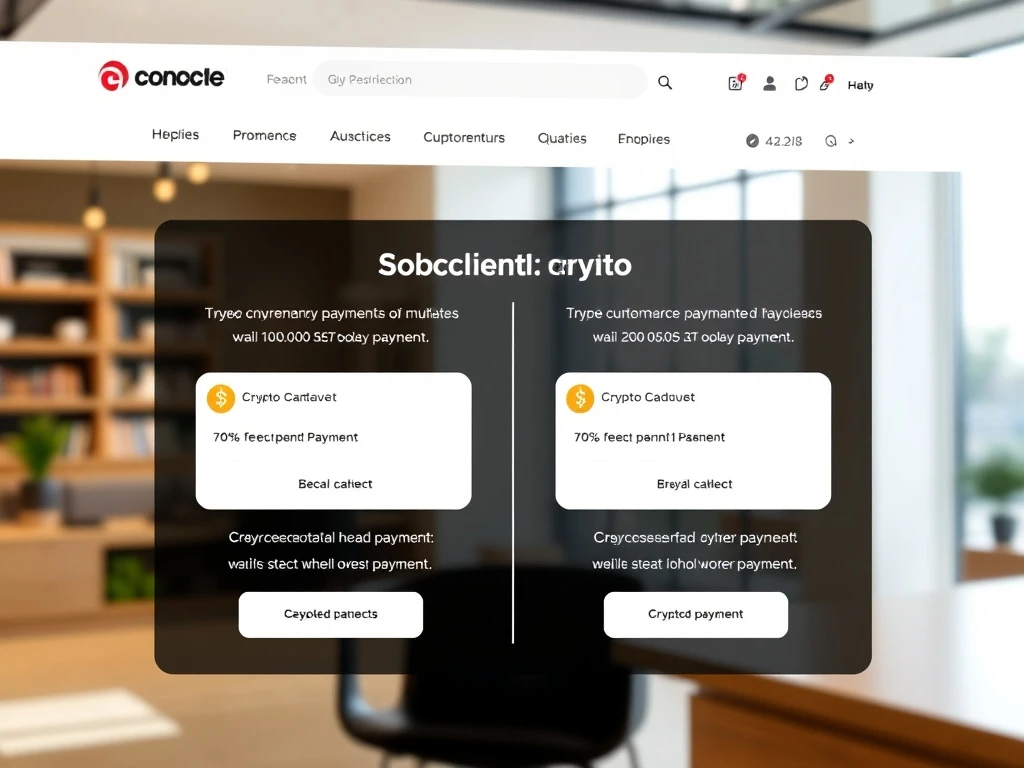Global e-commerce merchants face escalating payment processing costs that significantly impact profitability. Fortunately, innovative crypto payment solutions now offer dramatic fee reductions while enhancing operational efficiency. These blockchain-based systems provide immediate financial benefits and competitive advantages for online retailers worldwide.
Why Traditional Payment Methods Fail Online Retailers
Traditional payment systems burden e-commerce businesses with excessive costs and operational limitations. Credit card processors typically charge 2% to 4% per transaction. Additionally, hidden fees further reduce merchant earnings. International payments incur currency conversion charges and intermediary banking fees. Moreover, delayed settlement times create cash flow challenges. Chargeback fraud represents another significant financial risk. Consequently, merchants seek alternative payment solutions.
The Blockchain Advantage for E-commerce
Blockchain technology transforms payment processing through decentralization. Crypto payment solutions eliminate multiple intermediaries from transactions. This reduction directly translates to lower processing costs. Transactions settle within minutes instead of days. Furthermore, irreversible transactions prevent chargeback fraud. Global accessibility expands customer reach significantly. These advantages collectively enhance merchant profitability and operational flexibility.
Drastically Lower Transaction Costs
Crypto payment solutions reduce fees to as low as 0.5% per transaction. This represents up to 70% savings compared to traditional methods. High-volume merchants achieve substantial cost reductions. Saved funds can reinvest in business growth initiatives. Alternatively, businesses may pass savings to customers through competitive pricing. Either approach strengthens market position and profitability.
Instant Global Payment Capabilities
Blockchain enables near-instant transaction settlement worldwide. Traditional bank transfers require several days for processing. Cross-border payments face additional delays and complications. Crypto transactions complete within minutes regardless of location. This speed improves cash flow management dramatically. Merchants gain immediate access to their funds. Consequently, inventory management and business operations become more efficient.
Elimination of Chargeback Risks
Cryptocurrency transactions are irreversible by design. This characteristic eliminates chargeback fraud completely. Merchants no longer face fraudulent payment reversals. Financial forecasting becomes more accurate and reliable. Reduced risk exposure improves business stability. Operational costs associated with dispute resolution decrease significantly. Therefore, businesses operate with greater financial predictability.
Expanding Customer Reach Globally
Crypto payment solutions unlock access to unbanked populations. Approximately 1.7 billion adults lack traditional banking services. Digital wallet ownership continues growing rapidly worldwide. Merchants can tap into these emerging markets effectively. Banking restrictions and card limitations become irrelevant. Customer base expansion occurs without geographical constraints. Ultimately, revenue growth potential increases substantially.
Real-World Implementation Strategies
Modern crypto payment gateways offer seamless integration options. Popular e-commerce platforms support straightforward implementation. Multiple digital currency acceptance becomes easily manageable. Real-time exchange rate conversion occurs automatically. Fiat currency settlement happens without merchant intervention. Volatility risks are mitigated through instant conversion. Technical complexity is minimized through user-friendly interfaces.
Future-Proofing E-commerce Operations
Digital commerce continues evolving toward decentralization. Consumer payment preferences increasingly include cryptocurrency options. Early adopters gain significant competitive advantages. Operational cost structures improve permanently. Global market accessibility expands dramatically. Technological innovation ensures continued relevance. Strategic positioning becomes stronger against competitors.
Frequently Asked Questions
How quickly can merchants implement crypto payment solutions?
Most platforms enable integration within 24-48 hours. API documentation and support ensure smooth implementation. Technical requirements are minimal for standard e-commerce platforms.
Do merchants need to hold cryptocurrency directly?
No, modern gateways automatically convert to fiat currency. Settlement occurs in the merchant’s preferred traditional currency. Volatility risk is eliminated through instant conversion.
What about regulatory compliance requirements?
Reputable crypto payment solutions handle regulatory compliance automatically. They maintain necessary licenses and implement KYC/AML procedures. Merchants benefit from compliant operations without additional effort.
Are crypto payments secure for merchants and customers?
Blockchain technology provides enhanced security through cryptography. Transactions are immutable and transparent. Fraud prevention capabilities exceed traditional payment methods.
Which cryptocurrencies do payment gateways typically support?
Most platforms support Bitcoin, Ethereum, and other major cryptocurrencies. Support continues expanding based on market demand and stability.
How do conversion rates compare to traditional methods?
Crypto payment solutions typically offer better exchange rates than banks. Lower overhead costs enable more competitive pricing. Transparency ensures merchants receive fair conversion rates.








